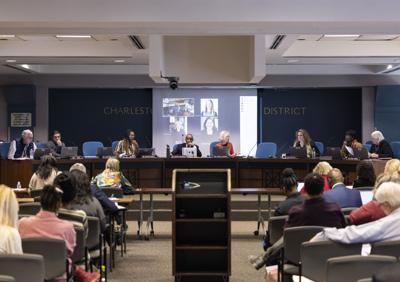We’re glad to see the S.C. House Education K-12 Subcommittee is scheduled to meet this week rather than closing down, as most subcommittees have done, as we approach the May 11 adjournment of this year’s regular legislative session. Unfortunately, the most important school bill that still has a chance of becoming law this year isn’t on the agenda.
S.134 is identical to a measure the House passed 72-36 last year requiring school boards to livestream their meetings. Last year's bill probably would have passed by an even larger margin but for the fact that House leaders added their so-called transparency bill — widely known as the anti-critical-race-theory bill. And with just a few days left in the 2022 legislative session, the Senate wisely refused to get dragged into that debate.
Our point isn’t about the games the House and Senate play during the last couple of weeks of the session to try to force the other body to pass bills it has been ignoring all year — although, come to think of it, perhaps that should be our point. Unfortunately, the livestream legislation isn't the sort of high-stakes bill that lawmakers are willing to play chicken over.
That's fine; we’d prefer not to see those games of chicken anyway. But we’d also prefer to see the House pass the livestream requirement.
It’s worth remembering that no one tried to strip the livestream portion out of last year’s bill, and nearly two-thirds of the House supported the bill that included it. The lack of opposition isn’t surprising, because there’s no good reason for politicians on the right or on the left to oppose it, and no good reason for public school supporters or public school opponents to oppose it.
S.134 would require all school boards to livestream their meetings, thus allowing parents and other constituents to watch them from home in real time — or go back later and see whether what they’ve heard happened actually happened. If a problem interrupts the livestream, the boards would have two business days to post “a clear audio and video recording of the meeting in its entirety” on their district website. Districts without broadband access could apply for an extension of up to 12 months.
Our largest school districts routinely livestream board meetings, as do several smaller districts. But about a third of districts don't. And those that do are under no legal obligation to do so — which means they could stop tomorrow and no one would have any recourse. Until the next election.
Truth be told, school boards aren’t the only entities that should be legally required to livestream their meetings, or at least post videos. County, city and town councils should be required to do that as well. College trustees should be required to livestream their meetings. State agency boards should be required to do it.
And yes, there ought to be a law requiring the House and Senate — and all of their committees and subcommittees — to do it. The Legislature was livestreaming its meetings before “livestreaming” was even a word and has served as an excellent role model for state and local boards and commissions, but it also is under no legal obligation to continue to do so.
Perhaps more significantly, some subcommittee and committee meetings aren’t livestreamed — or even videoed for the public to view later. Often, this is just because there aren’t any meeting rooms available with the equipment that makes livestreaming easy and automatic. Sometimes, though, it’s because the committee or subcommittee doesn’t want the public to easily view the meeting.
Frankly, as we have explained repeatedly, even the lack of equipment isn’t a legitimate excuse; anyone with a smartphone can video a meeting, which legislative staff or ETV could post after the fact. And anyone with a smartphone and a Facebook page can livestream a meeting.
But with just six legislative days left and the House inexplicably having ignored this matter since the Senate passed S.134 unanimously in February, we’re getting ahead of ourselves. So for today, we urge the House K-12 Subcommittee to add the livestream bill to the top of its agenda Tuesday afternoon — and advance it. And we urge House Education Chairwoman Shannon Erickson to schedule a full committee meeting this week to take up the bill. If she can’t make that work, she should recall the bill from committee, so the House can debate it this week or next.
We’d love to see the House expand the scope of the bill to cover all governing boards. But if that’s procedurally or politically impossible in the short time left, lawmakers should go ahead and get started on an expanded commitment to transparency by adding this tiny but important requirement, which will make it easier for everybody to see what’s going on in the boards that have always been crucial to the education of the next generation and that more recently have become ground zero in the culture wars.
Click here for more opinion content from The Post and Courier.













